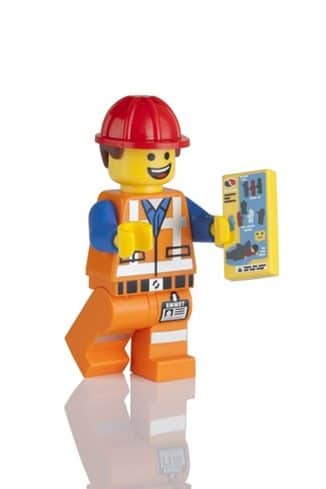Originally posted on January 7, 2017 @ 7:18 AM
The Safety Spoilsport

Play is an essential part of learning. Play recognises the uncertain in learning and doesn’t stress about not knowing the outcome. Play teaches us that autotelic activity (with meaning and purpose in itself), are critical for growth, development and education of personhood. It is through play that we learn a special form of tacit knowledge about others and about play itself. The fun and joy in play is discovered in the participation of playing itself, not for some serious (or ulterior) outcome but for the learning in its own sake. In this way we just know the ‘other’ is at play. The pleasure of play, is being in play. We also know that play is not serious indeed, to attach the word ‘serious’ to play wrecks the very meaning of play. BTW, anyone who studies a teaching degree knows about play and the importance of play in educational development. The latest fad for executives of Lego Serious Play (https://www.lego.com/en-us/seriousplay) is a great example of nonsense language and discourse applied to non- leadership. I am sure it earns good dollars for consultants, but it is a contradiction of the meaning of ‘play’. The application of structure and control to play makes it no longer play.
It is critical to maturity to learn when we and others are ‘at play’. In order to be human we need to know when improvisation, discovery, messiness, spontaneity, uncertainty, freedom, ambiguity, risk, creativity, paradox, fun and purpose in purposelessness are at work. We know it was a ‘play-fight’. We made a ‘play’ on words. We went outside to ‘play’. It wasn’t serious, it was just play. All of these expressions make (tacit) sense to us. We also need to discern when others are serious or at play, because any confusion can lead to violence, taking others the wrong way or misunderstandings.
We also learn very early in life that the wreckers of play are ‘spoilsports’. These are the ones who want control and can’t have it. These are the ones who want certainty but can’t create it. These are the ones who hate play because they hate disorder, freedom and uncertainty. The spoilsports only want the power to control and hate the loss of that power in play. The spoilsport takes their bat and ball and goes home. For the spoilsport everything is binary, you either play ‘my way or the highway’. There is no freedom for ‘emergence’ or ‘evolution’ in the demand for absolute power and control, all must be zero.
We know that Safety can only be the spoilsport because, Safety hates:
- Alack of structure, the safety curriculum is all about regulation, there can be no self-regulation in the study of safety (https://safetyrisk.net/isnt-it-time-we-reformed-the-whs-curriculum/ ). Indeed, the freedom of the self is the enemy of Safety. ‘Engineer out the idiot’ is the mantra.
-
Loss of control, there can be no messiness or there will never be zero.
-
Fun and freedom, only dominance by Safety in the name of good/care/helping can ensure that people come to zero harm.
-
Dialogue, it only likes ‘telling’, this is because safety has assumed the role of ‘custodians of the Act’, even though no one in safety is a lawyer. The mythology that a $350 Cert 4 in WHS makes one a bush lawyer is alive and well in safety. (Read more about the The Law and the Social Psychology of Risk here: http://cart.humandymensions.com/product/risky-conversations/ )
-
Loss of power. Safety cannot release power of choice to others. This is because ‘safety is a choice you make’. And if people chose harm they must be ‘saved’ from themselves. This power of salvation makes safety a religious activity, evidenced in the Bradley Curve and in safety discourse (https://safetyrisk.net/nonsense-curves-and-pyramids/ ). The power of salvation entitles power over ‘others’ who ‘chose’ unsafety. In this way safety ‘saves’ others from their own will. In the end, a passion for safety is often made a justification for all dehumanization of others in the name of salvation.
-
Learning, because learning requires risk and risk must be eliminated.
-
Improvisation or bicolage, everything is unsafe without rigid regulation and control. There can be no zero without absolute ‘cardinal’ rules and enforcement.
-
Discovery. Discovery acknowledges the open-endedness of all play and in zero there can be no creativity or open future, choice and the freedom to chose is made a problem by Safety not a virtue.
-
Trade-offs and by-products of all play. For Safety everything is binary either-or, there can be no paradox of experience and life-meaning in safety.
I0. Play. In safety all is serious, this is because safety is about life or death, even play must be made serious, the anathema of play. In this way Safety learns to speak nonsense language and discourse eg. Zero doesn’t mean zero.
If you want to learn more about the nature of play read: Ryall, Russell and MacLean The Philosophy of Play.



Do you have any thoughts? Please share them below